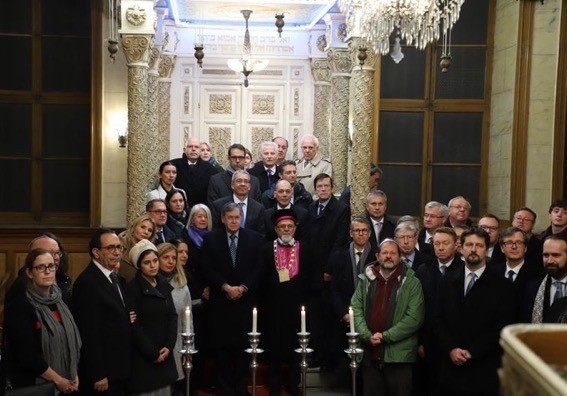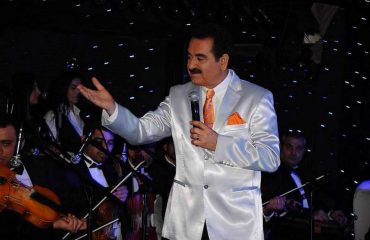

Stella Levi had married and moved from the Jewish neighborhood of Balat, Istanbul to Paris before the outbreak of the Second World War. When Nazi armies invaded Paris, a Jewish hunt had begun. Stella was still carrying a Turkish passport, so she applied for protection to the Turkish Embassy in Paris but her two daughters, Irene and Neli were not Turkish citizens; they could be taken away by Nazis to one of the concentration camps, probably Drancy. Stella, now with the surname Aseo, applied for the help of Behiç Erkin, the Turkish Ambassador to Paris back then, to save her kids.
Erkin instructed his Council General, Namık Yolga, and Deputy Consul in Marseille, Necdet Kent, to do their best to include Stella and her daughters to the list of a covert operation to save Turkish Jews from the hands of the Nazis. When she was hiding from the hunt, she got the news that both her daughters were quickly given Turkish passports. In 1943 they were among hundreds of Turkish Jews taken to Istanbul by train. On their retun, Stella and her daughters lived with her sister Roza for some time. Roza’s then three year old daugher Jale told her son İshak years later that her two cousins were only taught the French national anthem, the Marseillaise, as the song to sing if Nazis came to take them.
On January 31 in Ankara, during the speech he delivered in the ceremony to commemorate the Holocaust victim, Stella’s grand nephew, İshak İbrahimzadeh, who is currently the head of the Turkish Jewish Community, very briefly mentioned this story as he was praising the efforts of Turkish diplomats who saved thousands of Jews from eventual extermination during WWII.
A modest commemoration
The commemoration was at the conference hall of Ankara University which had embraced dozens of Jewish scholars, and not only from Germany, during WWII. The diplomatic mission, academics and representatives of the Jewish Community of Turkey were there. İbrahimzadeh said in his speech that it was his first time visiting the infamous Auschwitz-Birkenau concentration camp on Holocaust Day, January 27, marking the 75th anniversary of its liberation by the Red Army. “I felt that getting out,” he said, “was much more difficult than getting in.”
Turkey commemorates Holocaust Day in such, rather low profile ceremonies since 2011; for the last five years, it has been hosted by Ankara University. It’s Rector, Erkan İbiş’s mentioning of the concentration camps, as actually extermination camps were silently approved by nods of the members of the Jewish community there. For the first time this year, a cabinet minister, the Minister of Culture and Tourism Mehmet Ersoy, has attended the commemoration. In his speech, he recalled the Turkish decision to welcome Jews escaping from the Spanish inquisition more than five centuries ago and underlined that Turkey was neither a part of the Holocaust nor closed its eyes to it. (Spanish Ambassador to Ankara Juan Gonzales-Barba was present at the ceremony as well as the German Ambassador Martin Erdmann and Russian Ambassador Aleksei Erkhov.)
A day before, on January 30, a delegation headed by the Chief Rabbi İsak Haleva visited President Tayyip Erdoğan with no statement before or after it, prayed at the Ankara Synagogue together with the –once lively, now diminishing- Jewish community in Ankara and was given a dinner by the Turkish Foreign Ministry officials. The reason why the ceremonies and activities are kept low-profile is the negative effect of the deteriorated relations between Turkey and Israel on the perception of the Jewish minority, in the eyes of certain Islamist groups and opinion holders. While radical Islamist groups target the Jewish community directly (like the 15 November 2003 Al Qaeda attacks on two synagogues in Istanbul, killing 23 people) Islamist and even pro-government columnists frequently write anti-Semitic and anti-Jewish articles going beyond criticizing the acts of the Israeli government against Moslem Palestinians. Yet, successive governments, even before Erdoğan’s Justice and Development Party (AKP) has been seeking the efforts of the Jewish Community to use their networks abroad in support of Turkish foreign policy.
The negative effect of the political atmosphere
For example, it’s worth asking the question whether Erdoğan, who celebrates every Jewish religious day could say a few words on the
But to be a member of the Alliance has certain criteria like officially announcing January 27 as Holocaust Day, high-ranking state officials making public appearances condemning the Holocaust and teaching the Holocaust in schoolbooks as a part of the courses dealing with WWII. The last is the most problematic part of it. Chief Rabbi
Yet the ceremony was a touching one. Two musicians from the Ankara University Conservatory sang songs on Holocaust victims; I didn’t know that Joan Baez’s “Donna, Donna” was one of them. A documentary by Deutsche Welle about Holocaust survivors was shown, giving everyone in the audience goosebumps and young dancers, again from the conservatory, staged a performance before candles were lit in memory of those ruthlessly killed during the Nazi rule.
Perhaps things will eventually get better in regional politics and it will be possible to commemorate this dark chapter of history at a higher profile so that more people learn about it and draw lessons for today.


